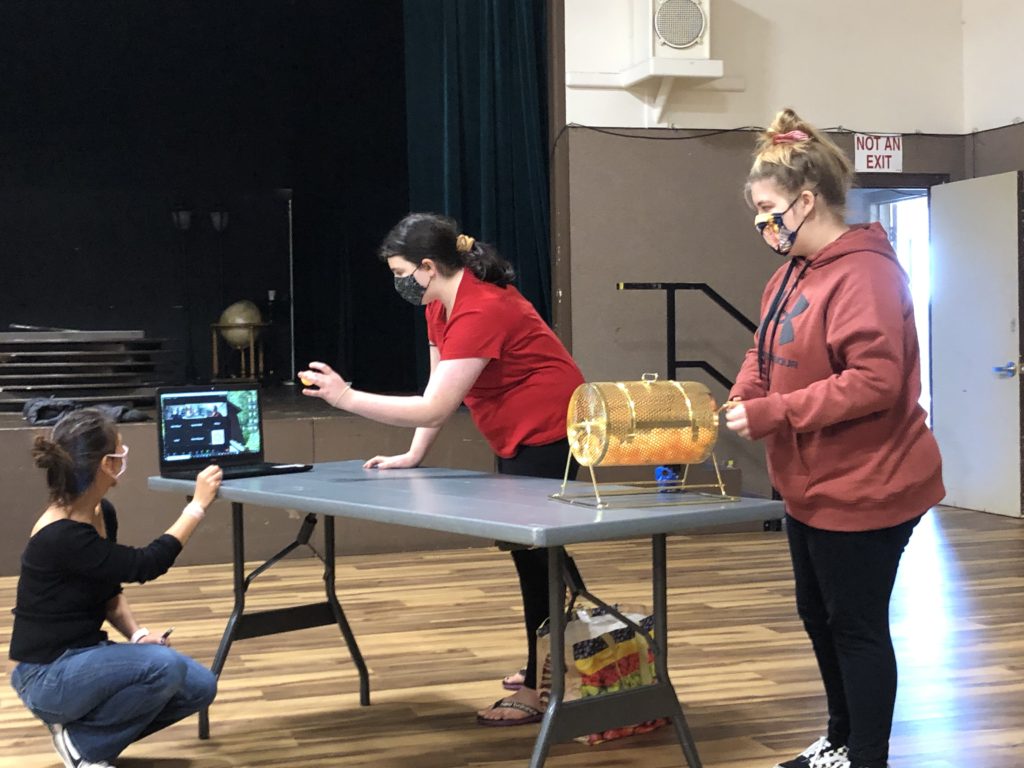
By QUINTON SMITH/YachatsNews.com
Are there more than 50 vacation rentals operating illegally in Yachats?
Some former members of the Yachats City Council thought there could be. But members of the new council are more skeptical, and are wrestling with ways to find out.
Information from officials in other Oregon coast cities and counties, and conversations with vacation rental managers indicate that a company that tried to get Yachats’ compliance business last fall may be over-selling the problem – if there is one.
Last week, the city of Waldport cancelled its four-month-old contract with that compliance company – Granicus — because it found only a handful of the 54 illegal vacation rentals the company initially said were operating there.
As the vacation rental business expanded across the country, so have companies seeking to help local governments keep track of them. Cities and counties are interested in the service so they can crack down on unlicensed vacation rentals but also to get them licensed and collect local and state lodging taxes.
The companies have special software that searches the internet for vacation rental advertising and compares them to actual licenses. They can also – for additional cost – provide around-the-clock complaint hotlines, licensing, payment and tax collection software and other services.
Yachats lottery for licenses
For three years Yachats has limited the number of vacation rental licenses to 125. When the cap was enacted in October 2017 there were an estimated 145 licensed, short-term rentals in the city – although not all of the license holders were actively using them.
Because Yachats licenses cannot be transferred with the property when it sells, the number of licenses slowly declined the past three years.
Last fall the number of licenses dropped to 120 – prompting the city to use a lottery to select five people for new licenses and determine the order of the waiting list for new licenses when they become available.
Clearly there is demand for licenses. Thirty-nine people signed up for the special lottery conducted by the city in early November.

As the city was preparing for the license lottery, Mayor John Moore was approached by a company that helps cities and counties track short-term rental licenses and other compliance issues. In September, Granicus, a vacation rental monitoring company based in Colorado, gave Moore a Power Point presentation that indicated there could be 181 vacation rentals operating in Yachats – 56 more than were legally licensed.
“It seems clear that we have had a significant increase in unlicensed rentals,” Moore told the City Council at an October meeting. He shared the company’s presentation with the council and urged councilors to have the company attend a November council meeting to make its pitch.

After Moore told the council that a contract with Granicus could cost at least $22,000 a year, City Manager Shannon Beaucaire warned that procurement rules requires the city to solicit bids from similar companies and screen them for suitability.
The city would “have to be careful about interviewing just one company,” Beaucaire said.
On Nov. 3 Moore lost his re-election bid to Councilor Leslie Vaaler. Two days later the City Council discussed the issue briefly, and then again Dec. 3, when it got tangled up in a whole host of questions from some councilors involving code enforcement and whether to leave the issue to a new council in January or February.
Moore’s term ended at the end of December and three new council members –- including Vaaler as mayor – were sworn in last week.
Most jurisdictions use compliance companies
In Oregon, many local governments pay companies to check for unlicensed rentals, and can provide a 24/7 complaint line and software to handle license renewals, taxes and other fees.
On the Oregon coast, the city of Cannon Beach and Tillamook County contract with Granicus. Until last week, so did Waldport.
The city of Newport and Lincoln County use a competitor called LodgingRevs.
Lincoln City, which has 500 vacation rentals, has a city employee monitor compliance and deal with complaints.
Cannon Beach, which has 200 licensed vacation rentals pays Granicus $8,000 a year for basic compliance help, said Jeff Adams, its community development director.
Granicus first pitched that city its services two years ago, estimating there were 40-60 illegal vacation rentals operating in the city, Adams said. Cannon Beach hired the company to search out illegal rentals, Adams said, but what it found turned out to be “more like a quarter of that.”
Still, Adams said, fines from “the first 2-3 we went after paid for the service.” Now, Granicus turns up 1-2 a month, he said, which also serves as a deterrent for others thinking about renting without a license.

Waldport City Manager Dann Cutter said he was skeptical when Granicus made its pitch that there were 54 unlicensed vacation rentals in the city, especially when Waldport had only 17 on the books. He negotiated a $11,000 yearly contract, but with a money back guarantee within six months if the city didn’t feel the service was working out.
Last week the city cancelled the contract after the company found only seven unlicensed rentals, some of which hadn’t operated for some time, Cutter said.
“It was going to bring in only half of what it would have cost us,” Cutter said.
Unlicensed rentals not always there
The city of Newport and Lincoln County went with another compliance and monitoring company called LodgingRevs.
Newport has 200 licensed vacation rentals in the city. Part of its licensing fee covers the $16,800 a year the city pays for LodgingRevs’ services, including a 24/7 complaint hotline and payment portal.
Derrick Tokos, Newport’s community development director, said LodgingRevs found only a “dozen or so” unlicensed rentals when it first started working for the city in 2019.
“They provide a product that meets our needs – somebody who can help with licensing and enforcement,” Tokos said.
In unincorporated areas of Lincoln County, vacation rental licensing and enforcement is handled by the sheriff’s department. It began contracting with LodgingRevs last summer, paying it $25,000 the first year to set up the service, look for unlicensed rentals, provide a complaint hotline and payment portal.
Granicus would have cost more, said Lisa Combs, director of support services for the sheriff.
The county has 576 licensed rentals, said Combs. An initial internet search by LodgingRevs indicated there could be 114 operating without a license. But a closer review whittled that down to 65, who were sent notices. The real number eventually shrank to 27 in late fall, Combs said.
“Even with the 65 we sent notices to, we got a lot of people calling in to say ‘We’re not doing that anymore, but the ad is still out there on the internet for some reason’,” Combs said.
Uncertain decisions in Yachats
In Yachats, it is not clear where the issue will go.
The city has changed mayors and the idea of contracting with a compliance company is intertwined with the new City Council’s complicated debate over whether to hire its own code enforcement officer or contract out the service.
City staff has also not done any research or data collecting on the sales pitch there could be 56 unlicensed vacation rentals in Yachats, or looked at other jurisdictions that use compliance companies – and which one might be more suited to Yachats.
Several council members have also said privately that in a city like Yachats – where not much goes unnoticed – the city would get lots of complaints if an unlicensed rental in a town of 750 homes suddenly had lots of visitors.
Meanwhile, five homeowners this month got the first new vacation rental licenses in three years after being selected in the November lottery.
One of them is Stephen Wagener of Falls Church, Va., an Oregon native and University of Oregon grad now working as a tax lawyer in Washington, D.C.
He took out a building permit for a new house in Yachats just before the 2017 license limit went into effect. Wagener now uses it a couple of weeks a year; his sisters in Eugene and Portland visit more often.
Wagener hoped to use income from renting it out to cover some costs until he retired in 8-10 years. Now he can.
“My family uses it a lot,” he said. “But it was an issue because we couldn’t rent it as we intended to cover some of those costs.”



How many family lived in resident houses pernamently are there in Yachats compared to rental units. It’s a small town. Really is half the town vacation rentals?
The company most likely wrote a script to search the internet for rentals in a certain area, then checks that list against the list of legal rentals. Then checking those out. After all that itwould be easy to run the script and find any new posts. Maybe hire someone/company to write the city a script they can then run.